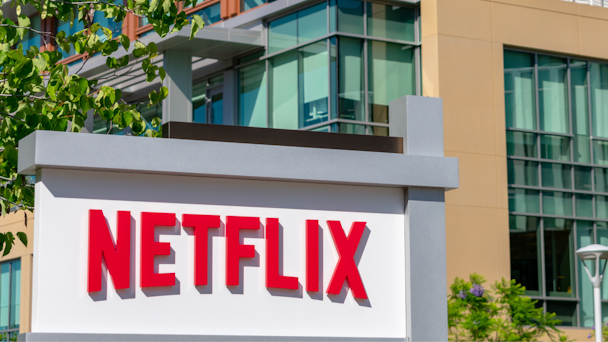Amid rumors of a Netflix-Roku deal, streaming and media experts react
As Netflix’s market value tanks in light of declining subscription rates, the streaming titan is turning to advertising to drive up revenue. Now, speculation within Roku is growing that Netflix could buy out the streaming device manufacturer to aid in its mission to build out an ad-supported business. Industry leaders share their predictions for what’s to come.

Is Netflix ready to pounce? / Adobe Stock
Netflix is considering buying streaming device company Roku, according to multiple reports.
Rumors have abounded in recent weeks after Roku unexpectedly closed its trading window — the timeframe in which employees are allowed to trade vested company stock. The move is often made by companies ahead of major news to prevent insider trading activity.
Following the reports, Roku stock surged 13%.
As Netflix eyes an ad-based business model amid dwindling subscriber counts, experts have postulated that the streaming giant would do well to acquire Roku, arguing that such a deal would create the kind of vertical integration needed for both companies to win in the increasingly competitive streamed media space. Roku’s video advertising marketplace garnered some $647m in revenue during the first quarter alone.
And most streaming and media industry experts think the potential acquisition makes sense. “Roku and Netflix have a long history, as the streaming platform was spun out of the company more than a decade ago,” says Ashwin Navin, chief executive officer and founder at television performance marketing platform Samba TV. “In that time, Roku has built a great company, with good distribution and strong advertising tech capabilities and a deep-benched ad sales team. Netflix is the leader in streaming content today now looking to get into the advertising game.”
Bringing the two together, Navin says, “could be a strong force multiplier for both,” especially considering their intertwined history and “cultural synergies.”
Other experts see a Netflix-Roku deal as an ideal solution as the tide rises on advertising video on-demand (AVOD) and free ad-supported TV (FAST) models. “Netflix buying Roku makes sense because it will give Netflix another revenue stream in a growing area of streaming,” says Nicole Sangari, vice-president of entertainment on demand, Worldpanel Division at Kantar. “We know that it’s [ad-supported TV] that’s now driving most of the growth in streaming.”
Meanwhile, she points out, SVOD models — and Netflix subscriptions in particular — are on the decline. “[These trends suggest that] ad-supported initiatives make sense for them with areas to grow. By introducing an AVOD tier within Netflix and owning Roku as a separate platform, they have all of their bases covered.”
Sangari says she’s curious to see what Netflix-Roku integration could look like. She, for one, predicts that if the deal goes through, the organizations won’t be merged completely and will remain separate entities under unified leadership — “otherwise that would defeat the purpose of strategically investing in an existing FAST player.”
Other industry leaders, however, aren’t convinced that the news is anything more than a rumor — or that such a deal would truly benefit Netflix and Roku. “The deal could happen but it’s not a perfect fit, necessarily,” posits Tal Chalozin, the chief technology officer and cofounder at adtech company Innovid. “Netflix built its success being device agnostic — acquiring a device-based business seems counter to that [mission].”
Even so, Chalozin admits that Roku has “the infrastructure Netflix will require for its ad-supported business.”
Sara Adler, head of TV at performance branding firm Within, also raises the point that a Netflix-Roku deal might negatively impact the media space by further entrenching Netflix’s dominance in the streaming space. “The last thing the industry needs is another walled garden representing both sides of the equation,” she argues. “[Were this deal to happen,] Netflix would be a publisher who also represented the buy side. It would be hard for them not to favor their inventory over other competitor streaming partners they support such as Disney, HBO Max and more. I can’t imagine that would excite the industry.”
Whether or not a deal will materialize remains to be seen.

